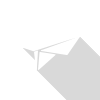If I touch a hot stove and burn my hand, I immediately learn that touching a hot stove results in a burned hand. My brain makes the connection almost simultaneously. There’s little need for reflection because the “hot stove=burn” connection is one that my mind makes almost immediately.
Similarly, suppose I’m driving in bad weather and going WAY TOO FAST for the conditions. If my car spins out and I find myself stuck in a ditch, I’ve learned a lesson about driving in bad weather. Again, the connection is almost instantaneous.
Academic learning however is seldom that obvious.
Let’s pretend I’m a fourth grade student, distracted by everything from cafeteria food to the playground outside my classroom window. If I fail a math test, am I immediately able to tell you why? Most kids aren’t self-aware enough or mature enough to tell you why they failed at something (or in some cases, why they got in trouble). The younger the student, the more difficult this is.
More than likely, since I’m not sure exactly WHY I failed a test, the only connection my brain makes is “Math = F”. Since most kids really do want to be successful, students also equate “F=Failure” and “Failure=Bad”. They don’t understand that failure is a part of the learning process, largely because we as teachers don’t allow students to re-do work and learn from mistakes. As a result, they come to hate the subject or the teacher, never really knowing why other than “I suck at Math.”
This is precisely why reflection is so important. Although it’s a cumbersome and time-consuming practice to teach to kids, without reflection it is almost impossible for actual “learning” to occur. Faced with increasing demands to “cover” as much material as possible to prepare for state tests, teachers often forego teaching students to reflect on their work, electing to instead “cover” the material. We often accuse kids of having “forgotten” material they “learned” the year before, but in reality, they never really learned it at all. The teacher “covered” it, perhaps the students memorized it for the short term before being lost forever. Reflection is a key ingredient to move knowledge from short-term to long-term memory.
Consider John Dewey’s famous quote “We don’t learn from experience. We learn from reflecting on experience.” Reformers like Mr. Dewey have been talking about the importance of reflection in the learning process since the 1930’s. For a more contemporary spin, consider the work of Dr. Bobb Darnell and his website AchievementStrategies.org. Darnell describes the learning process as “Input-Process-Output-Reflect” and notes that without reflection, it is very difficult to have genuine learning.
If the goal is not merely coverage but actual learning, than reflection is no longer optional – it’s an essential piece to transition a classroom from “covering material” to being “focused on learning”.
After all, if I touch a hot stove and burn my hand, but never make the connection that the hot stove is what burned my hand, I’m likely to repeat that mistake. This is an absurd example - of course it’s the stove that burned my hand - but often times in life “What went wrong?” is a question without an obvious answer. And unfortunately, it’s a question that the vast majority of our students never even think to ask.
And while many colleges talk about the importance of being a “reflective practitioner” in their teacher training programs, there seems to be little “reflection” taught in the classroom…probably because teachers are so bad at it themselves.
For some silly reason it’s not cool to talk about “reflecting”. It’s difficult for teachers, who as a result of their position as the “distributor of knowledge” in the mind of most students and parents, feel obligated to be “right” all the time. This is of course, absurd. However, because of this need to be right we get very defensive and struggle to admit when we’re wrong.
There’s something about the word “reflection” that seems to make teachers uncomfortable. Maybe because it’s too “touchy, feely” for some. Maybe it’s because it requires adults to show humility, and admit they can improve. Regardless, if we’re not willing to practice it ourselves and model it for our students, how can we ever hope to see them reflect on their own mistakes?
Reflection is an integral part of the learning process. It allows us to learn more about ourselves and how we learn, but it also aids us in improving academic skills. Consider sports teams that watch film of the previous night’s game. They’re able to identify mistakes and correct them at practice. Looking at a failed math test can have the same result if we help students to notice “Oh! I forget to carry the one every time I borrow!” Then, we can look back on the learning process as well, and help students discern which activities worked for well for them and which ones didn’t.
Teaching students to reflect on their work by noticing and correcting their own mistakes as well as which activities and behaviors allowed them to be successful is a vital part of the learning experience that far too many classrooms leave out of the equation. As teachers, we should model this expectation by reflecting ourselves and involving students in our own reflections. Only then can we help students understand not to touch a hot stove, as opposed to simply making them afraid of all stoves forever.






